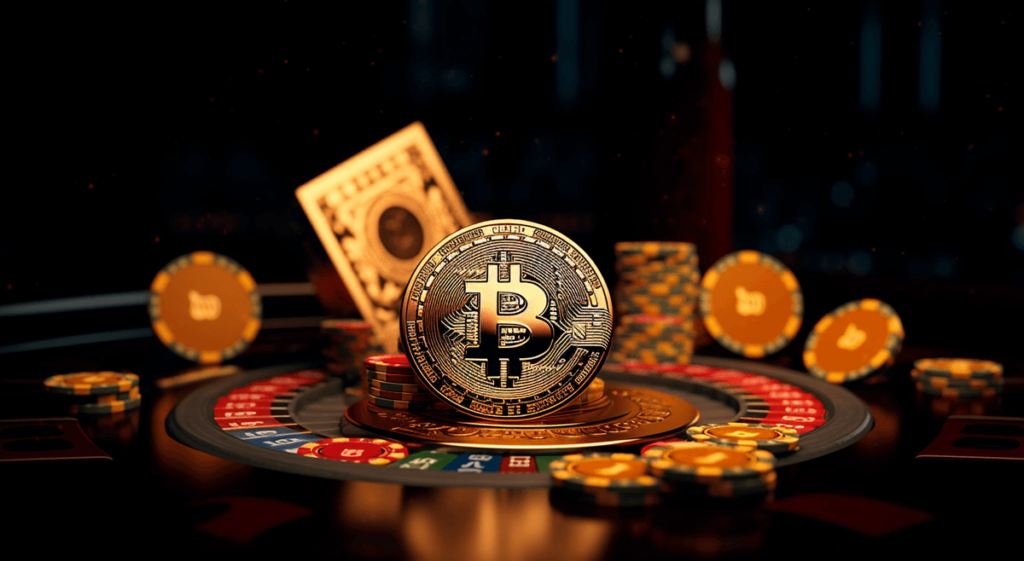Latest Cryptocurrencies and Blockchain Poker Trends
sandy
October 8, 2024

The poker industry has experienced a massive shift in recent years with the introduction of cryptocurrencies and blockchain technology. This transformation has redefined how games are played, secured, and accessed.
The integration of blockchain in poker brings new possibilities, including faster, more secure transactions, and the concept of provably fair games. This article delves into the latest blockchain poker trends and explores how cryptocurrencies are revolutionizing the industry.
Blockchain Technology in Poker
Blockchain technology, a decentralized ledger, has brought significant changes to industries beyond finance. Poker is no exception. Traditionally, poker platforms operate centrally, requiring players to trust the operator to manage deposits, withdrawals, and game fairness.
With blockchain, these activities become verifiable, immutable, and transparent, significantly enhancing player confidence.
Secure Transactions
One of the most notable benefits of blockchain in poker is the enhanced security it offers for transactions. When a player deposits or withdraws funds on a blockchain-based poker site, the entire process is recorded on an immutable ledger, guaranteeing the integrity of transactions.
Cryptocurrency Adoption
Many poker sites have started accepting popular cryptocurrencies like Bitcoin (BTC), Ethereum (ETH), and Litecoin (LTC). These cryptocurrencies allow players to avoid traditional banking channels because this can sometimes lead to restrictions or delays. Bitcoin’s increased adoption has particularly improved transaction efficiency for poker players.
Instant Payments
Blockchain transactions are processed almost instantly, which provides players with the ability to join games or cash out winnings without long waiting times. This convenience makes blockchain-based poker platforms attractive. Plus, they also streamline various financial processes.
Provably Fair Games: Revolutionizing Player Trust
What Are Provably Fair Games?
One of the most intriguing blockchain poker trends is the concept of provably fair games. In a provably fair system, both players and operators can verify the fairness of a game outcome using cryptographic algorithms.
This allows for complete transparency in the way cards are dealt and outcomes are determined, making it impossible for the operator or any third party to manipulate the results.
Fairness Verification
In provably fair poker, players receive a “hash” representing the game outcome before it begins. After the game concludes, they can verify the outcome against this hash to confirm that no manipulation occurred. Blockchain technology makes this level of fairness and transparency possible, setting new standards for the industry.
Popular Cryptocurrencies in Poker

The integration of cryptocurrencies into poker platforms has introduced a new way for players to engage with the game. These platforms provide options for players to choose their preferred currency based on speed, anonymity, and transaction cost.
1. Bitcoin (BTC)
Bitcoin remains the most widely accepted cryptocurrency in the poker world. It has become a popular choice due to its reliability and high liquidity. Many players prefer Bitcoin for its anonymity and its status as the pioneering cryptocurrency.
2. Ethereum (ETH)
Ethereum has also gained traction in the poker industry, particularly for platforms running on the Ethereum blockchain. With the use of Ethereum’s smart contracts, automated payouts are possible, ensuring fairness and timely payments without intermediaries.
3. Ripple (XRP) and Litecoin (LTC)
Cryptocurrencies such as Ripple and Litecoin have grown in popularity as well, mainly due to their lower transaction fees and faster processing times. Ripple’s scalability, in particular, allows for rapid transactions even during periods of high network activity.
Integration of Decentralized Apps (DApps) in Poker
Another blockchain trend gaining traction in the poker industry is the integration of decentralized applications (DApps). These are applications that run on blockchain networks, providing a decentralized and transparent alternative to traditional poker apps.
DApps for Poker Platforms
DApps provide a way for players to interact directly with the blockchain, bypassing central servers and improving transparency. Crypto Poker Club, for instance, is a popular DApp attracting players for its guarantees of fair play.
NFTs in Poker: The New Wave
Non-fungible tokens (NFTs) are making their way into the poker scene, providing players with new ways to interact with the game. NFTs represent ownership of digital items or assets, which can range from in-game collectibles to digital artwork.
Virtual Poker Assets
Players can acquire NFTs representing in-game assets such as customized poker tables or exclusive tournament tickets. Since these assets are secured on the blockchain, their ownership is verifiable, and they can be traded across marketplaces.
Player Tokens and Rewards
Some poker platforms issue player tokens that reflect individual achievements and provide special privileges. These tokens can be collected or traded, adding a gamification aspect that enhances the experience for poker enthusiasts.
Future Trends: Blockchain-Powered Poker Tournaments
Blockchain technology also presents an opportunity for global poker tournaments to be more inclusive and transparent. Players from different countries can participate without concerns about currency conversion or banking restrictions.
Lower Fees
By eliminating intermediaries, blockchain-based tournaments offer lower fees, allowing for a larger share of the prize pool to go directly to the players.
Accessibility
Blockchain-based poker provides players from developing regions with the opportunity to participate without facing typical financial barriers, enabling a more inclusive tournament environment.
Conclusion
The integration of blockchain technology and cryptocurrencies into the poker industry is transforming the game, ensuring transparency, security, and fairness for players worldwide.
With the rise of provably fair games, instant cryptocurrency transactions, and the growing popularity of NFTs, blockchain-based poker is introducing new levels of trust and innovation.